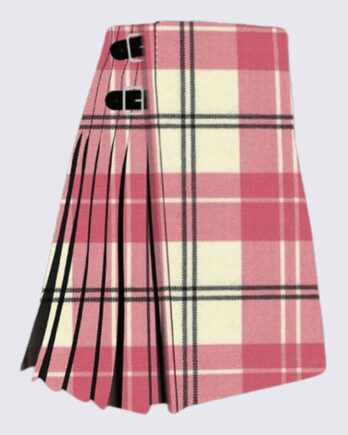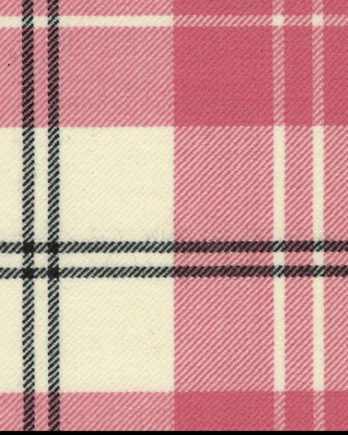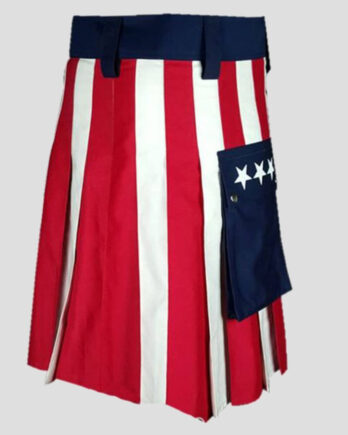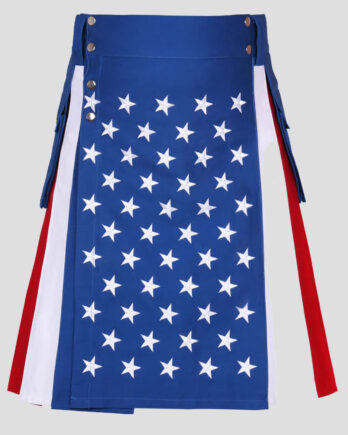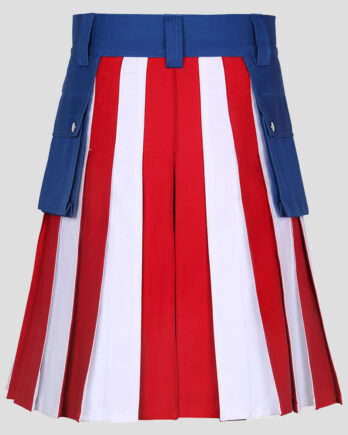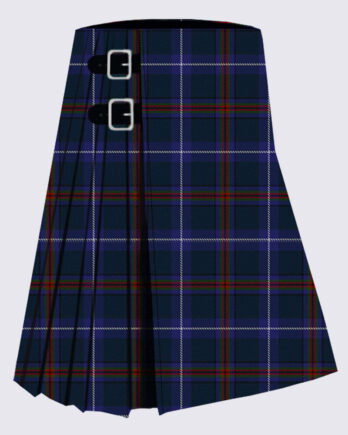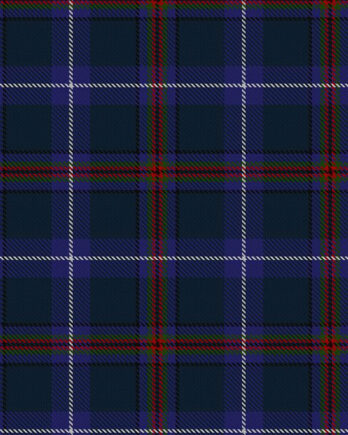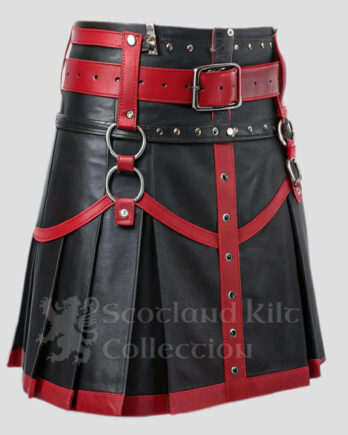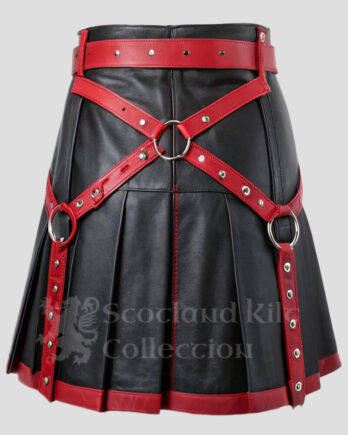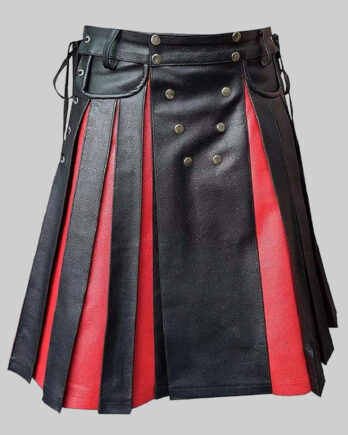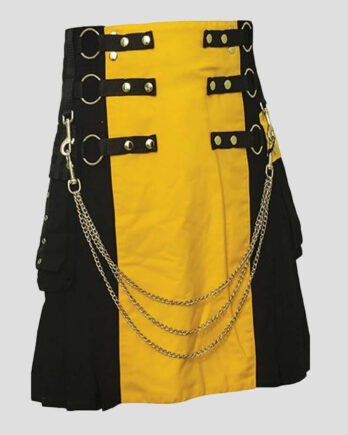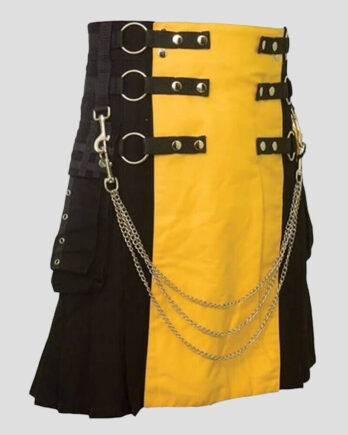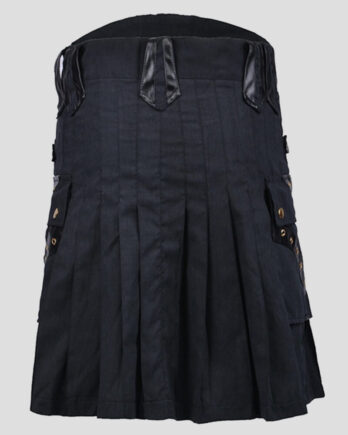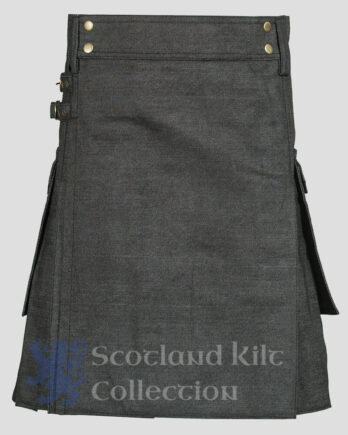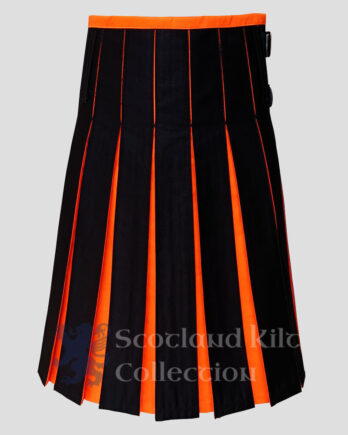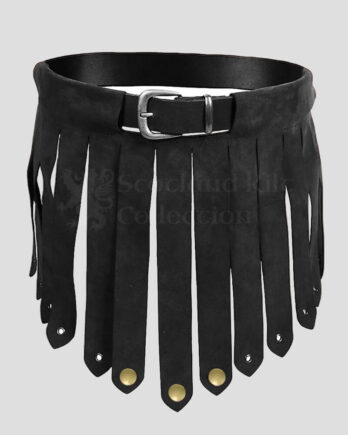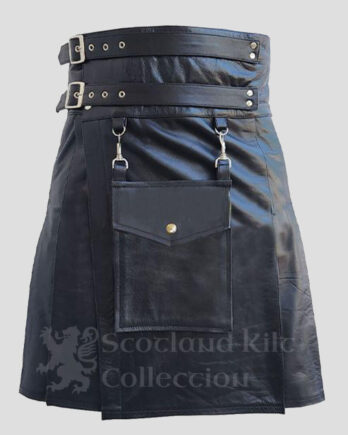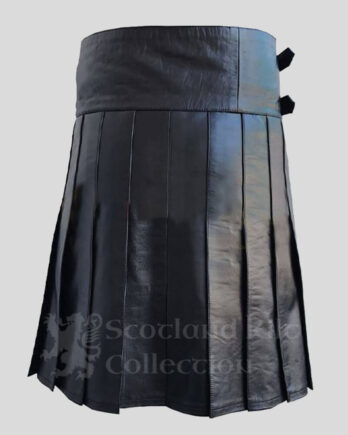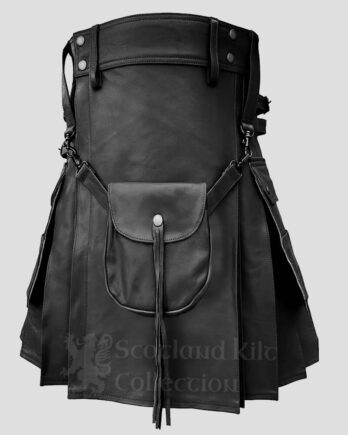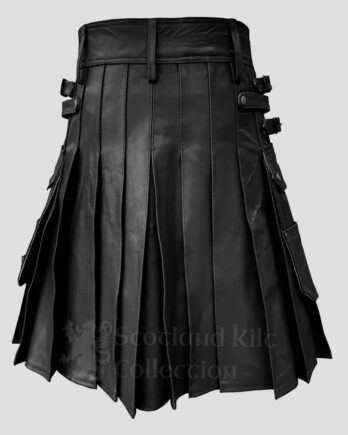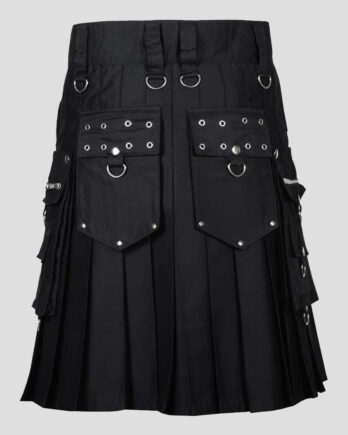At Scotland Kilt Collection, discover the finest kilts for men, expertly crafted with authentic tartans and contemporary style. Our range includes traditional Scottish kilts, rugged utility kilts, and stylish modern kilts for sale—perfect for weddings, Highland games, or everyday wear. Looking to buy Scottish kilts online? We offer custom kilts for men, tailored to your exact size for all-day comfort and style. From affordable kilts to premium tartan kilts, our collection blends tradition, durability, and elegance. Shop now and wear your heritage with pride.
-
- Sale!
Ailsa Pink Tartan Kilt
- Original price was: $420.$339Current price is: $339.
-
- Sale!
American Flag Kilt | USA Flag Hybrid Utility Kilt
- Original price was: $98.$93Current price is: $93.
-
- Sale!
American Flag Utility Kilt
- Original price was: $110.$100Current price is: $100.
-
- Sale!
American National Tartan Kilt
- Original price was: $420.$339Current price is: $339.
-
- Sale!
Black & Purple Hybrid Kilt
- Original price was: $135.$105Current price is: $105.
-
- Sale!
Black & Red Gothic Leather Kilt
- Original price was: $490.$319Current price is: $319.
-
- Sale!
Black & White Hybrid Utility Kilt
- Original price was: $167.$109Current price is: $109.
-
- Sale!
Black and Yellow Gothic Utility Kilt
- Original price was: $146.$109Current price is: $109.
-
- Sale!
Black Deluxe Utility Fashion Kilts
- Original price was: $120.$110Current price is: $110.
-
- Sale!
Black Denim Utility Kilt
- Original price was: $110.$100Current price is: $100.
-
- Sale!
Black Denim Utility Kilt for Active Men
- Original price was: $167.$109Current price is: $109.
-
- Sale!
Black Denim Wallace Tartan Hybrid Kilt
- Original price was: $167.$109Current price is: $109.
-
- Sale!
Black Detachable Denim Kilt
- Original price was: $167.$109Current price is: $109.
-
- Sale!
Black Hybrid Cotton Utility Kilt With Cargo Pockets
- Original price was: $115.$109Current price is: $109.
-
- Sale!
Black Hybrid Kilt Orange
- Original price was: $110.$99Current price is: $99.
-
- Sale!
Black Hybrid Utility Bear Pride Kilt
- Original price was: $110.$99Current price is: $99.
-
- Sale!
Black Leather Gladiator Kilt – Keanu kilt
- Original price was: $299.$240Current price is: $240.
-
- Sale!
Black Leather Kilt with Detachable Front Pocket – Sexy kilt
- Original price was: $450.$280Current price is: $280.
-
- Sale!
Black Long Fashion Utility Kilt For Men
- Original price was: $180.$160Current price is: $160.
-
- Sale!
Black Punk Rock Gothic Utility Kilt
- Original price was: $240.$110Current price is: $110.
Kilts for Men – For Every Occasion and Every Budget
Welcome to Scotland Kilt Collection, the trusted destination for premium kilts for men. Whether you are preparing for a wedding, Highland festival, or casual outing, our kilts bring together tradition, comfort, and modern flair. From traditional tartan kilts to rugged utility kilts and bold fashion kilts, we design each piece with authentic craftsmanship and attention to detail. Here, you’ll find kilts that fit every personality, lifestyle, and budget.
Traditional Scottish and Tartan Kilts
Our tartan kilts are deeply rooted in Scottish heritage and Highland pride. Crafted from genuine tartan patterns, they celebrate the culture of Scotland and Ireland while offering durability and comfort. Whether you belong to a clan or want to embrace heritage, these kilts represent strength and tradition. For weddings, parades, and formal occasions, our Scottish tartan kilts remain a timeless choice.
Utility Kilts and Work Kilts
For those who value both style and functionality, our utility kilts are designed with multiple pockets, reinforced stitching, and durable fabrics. Perfect for work environments, festivals, or outdoor adventures, these kilts give you freedom of movement while carrying essentials with ease. Our work kilts provide rugged performance, making them ideal for men who need practicality without losing style.
Hybrid, Denim, and Leather Kilts
If you want something modern and unique, our collection includes hybrid kilts that blend tartan with solid fabrics for a bold, fashionable look. For casual and urban style, explore our denim kilts, crafted from high-quality denim with pleated designs. For men who want strength and sophistication, our leather kilts make a striking statement. These kilts are not only stylish but also durable, ensuring long-lasting wear.
Fashion Kilts and Bold Designs
Kilts are not limited to tradition—they’re also about personal expression. Our fashion kilts come in trendy cuts, lightweight fabrics, and striking designs that stand out in any gathering. From casual parties to music festivals, these kilts let you showcase individuality while staying connected to Highland roots. Men looking for something colorful can explore our rainbow kilts, perfect for pride events, cultural celebrations, or making a bold style statement.
Tactical, Firefighter, and Camouflage Kilts
At Scotland Kilt Collection, we also provide kilts designed for specific professions and lifestyles. Our tactical kilts are made with high-strength materials for outdoor and military use, offering durability and flexibility. For heroes who serve, our firefighter kilts symbolize courage and honor, built to last with strong fabrics and reinforced pleats. Those who enjoy outdoor adventures can choose from our camouflage kilts, blending rugged utility with outdoor style.
Patriotic Flag Kilts
Show your national pride with our patriotic flag kilts. These kilts combine tradition with bold flag designs, making them perfect for cultural festivals, parades, or special events. Each kilt is tailored with care, ensuring you not only celebrate your identity but also enjoy all-day comfort.
Custom Kilts Tailored to You
Every man deserves a perfect fit. That’s why we offer custom kilts for men made to your exact measurements. From traditional tartan kilts to utility kilts and modern styles, our tailors create kilts that match your size, comfort, and lifestyle. Our handmade kilts reflect true craftsmanship, giving you a garment that is uniquely yours.
Affordable Kilts for Every Budget
At Scotland Kilt Collection, high quality doesn’t mean high price. We specialize in affordable kilts that deliver premium fabrics, authentic designs, and lasting durability without breaking the bank. Whether it’s your first kilt or an addition to your wardrobe, you’ll always find value in our collection.
Why Choose Scotland Kilt Collection?
- Wide selection: Tartan Kilts, Utility Kilts, Hybrid Kilts, Leather Kilts, Denim Kilts, Fashion Kilts, and more.
- Specialty designs: Rainbow Kilts, Patriotic Flag Kilts, Firefighter Kilts, Tactical Kilts, Camouflage Kilts.
- Custom kilts tailored for the perfect fit.
- Affordable pricing with authentic quality.
- Trusted worldwide by men who value heritage, style, and comfort.
When you search for the best kilts for men, Scotland Kilt Collection stands as the ultimate kilts shop, offering tradition, strength, and modern style in one place.
Order Your Kilt Today
From traditional Scottish kilts to modern utility kilts and bold fashion kilts, Scotland Kilt Collection is your one-stop shop. Each kilt tells a story of culture, individuality, and pride. Order now to enjoy authentic craftsmanship, a perfect fit, and lasting value.
Wear your heritage with confidence, tradition, and pride—only at Scotland Kilt Collection.


